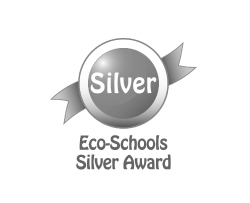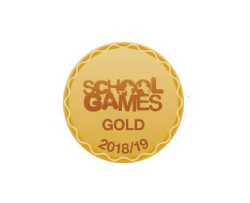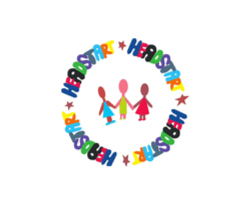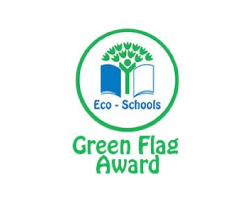Welcome to Caedmon Primary School EYFS
At Caedmon Primary School we aim to provide high quality care and education for all children. We focus on creating a secure and nurturing environment where children are keen to come into school each day. We endeavour to plan and deliver stimulating learning experiences that run alongside an inviting learning space where children are encouraged to develop their skills to become inquisitive, creative and resilient learners. We want every child to feel valued and know that their individual personalities are respected as part of our school family.
We aim to prepare children to reach the Early Learning Goals at the end of the Foundation Stage and ensure children make good progress from their starting points. At the end of a child’s time in Reception we strive to support their transition into Key Stage 1.
INTENT
Intent
Our curriculum is built around the Early Years Statutory Framework and the Programmes of Study whilst taking into account the Development Matters framework. We provide a broad and balanced curriculum and have designed a sequenced and progressive format to ensure that new learning builds on prior knowledge to enable our pupils to know more and remember more. Our curriculum is inspiring and challenging, in order to offer pupils opportunities to grow as unique individuals as well as learners.
Our curriculum is designed to reflect local history, geography and people. It provides a base around which teachers develop exciting and stimulating learning experiences to promote the development of pupils’ knowledge, understanding and skills. Lessons are enhanced by visits, visitors or experiences to stimulate and engage children and provide exciting opportunities for our pupils to deepen their understanding.
We actively promote the Caedmon Characteristics to ensure our pupils enjoy learning and that they are prepared to move into Year 1 where we will continue to prepare them for life in modern Britain:
- Respect others
- Be well mannered
- Be friendly
- Be happy
- Never give up
- Work hard
- Be confident and try new things
- Be well behaved
- Work well with others
- Enjoy and be interested in learning
We also offer our pupils new and exciting experiences through a range of extra-curricular activities that are designed to build resilience, confidence and self-esteem.
Implementation
The Foundation Stage team work closely with the children, helping them to learn to adapt from the home environment to the new and challenging experiences of school. Our team support children to foster new relationships with their peers and help them to learn to work together, in order to share, co-operate and to solve problems.
What will your child learn?
The EYFS is made up seven areas of learning. These are:
Three Prime Areas
- Communication and Language
- Physical Development
- Personal, Social and Emotional Development
Four Specific Areas
- Literacy
- Mathematics
- Understanding the World
- Expressive Arts and Design
Each area is of equal importance and is dependent on each other. When a child enters the Nursery, the main learning focus surrounds the three prime areas. Then, the four specific areas are introduced to extend learning and development. Each area is delivered through a balance of adult led and child initiated activities. We use each area to plan a broad and balanced, interesting and exciting curriculum for your child in order for them to become lifelong learners.
We recognise that children will learn most effectively when they are healthy, safe and secure, when their individual needs are met and when they have positive relationships with the adults who care for them. We aim to provide a setting that encompasses a safe and stimulating environment where children are able to enjoy learning and grow in confidence that helps them to achieve their fullest potential.
Teaching in Foundation Stage is practical and playful with support and challenge from adults during whole class sessions, small group sessions, and when working 1:1 with individuals. There is a combination of adult-led, teacher taught sessions alongside opportunities for children to learn through play in the continuous provision. Alongside the 7 areas of learning, we spend time reflecting on the different ways that children learn and consider how to best use this knowledge to support each child with their individual learning. The focus of the ‘Characteristics of Effective Learning’ is on how children learn rather than what they learn; therefore we strive to support the children to develop the skills that they will continue to draw upon throughout their development and school career.
Impact
From their individual starting points, we aim for all children will make at least good progress academically, emotionally, creatively, socially and physically. Knowledge, understanding and skills will be secured and embedded so that children attain well, alongside developing a sense of themselves, so that they are well prepared for Key Stage 1. We strive to ensure that many of our pupils reach the Early Learning Goal at the end of Reception and that the vast majority of our pupils make excellent progress from their starting points.
At Caedmon Primary, we identify children’s starting points and plan experiences to ensure progress. We measure and monitor the impact of our curriculum through talking to pupils and their carers, spending time looking at pupils work, observing their learning experiences and analysing data and progress for every pupil. Evidence of children’s learning in Nursery and Reception ( including: some observations, work samples, photographs and contributions from parents) are kept in the children’s ‘Special Books’ which teachers, parents and children use to reflect on individual experiences and progress. Our assessment judgements are moderated both in school and externally with other schools in our Trust.
Alongside the areas of learning, pupils will have developed their ‘Characteristics of Effective Learning’ and are able to apply their knowledge to a range of situations making links and explaining their ideas and understanding. Children are able to take risks and discuss their successes and failures with adults, drawing on their experiences to improve or adjust what they are doing. Pupils will have been supported to make sense of the world around them; developing tolerance, compassion, respect and an understanding of others. By the end of Foundation Stage we aim for children to be well rounded, happy, inquisitive and successful learners, who are good role models both for our school community and their local community.







